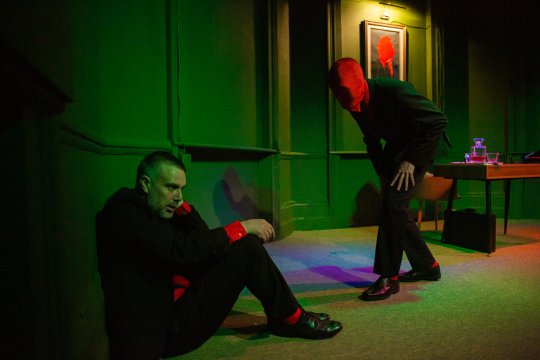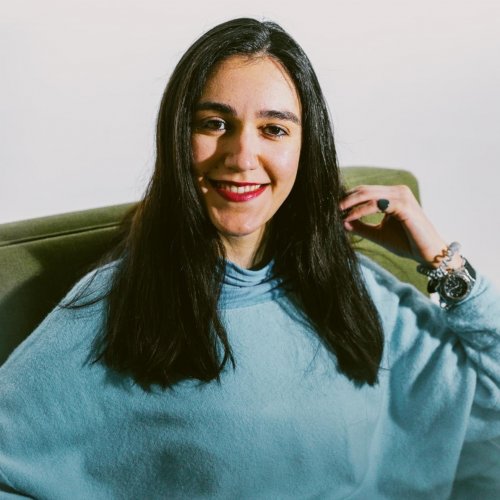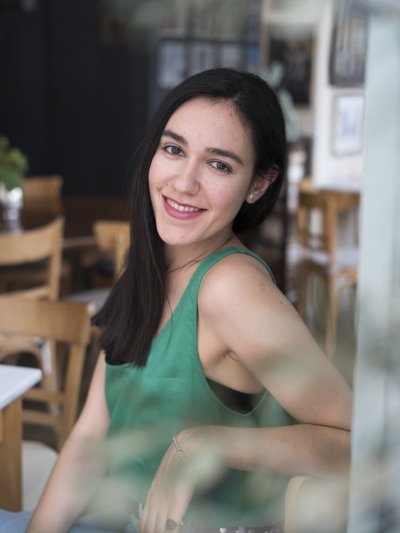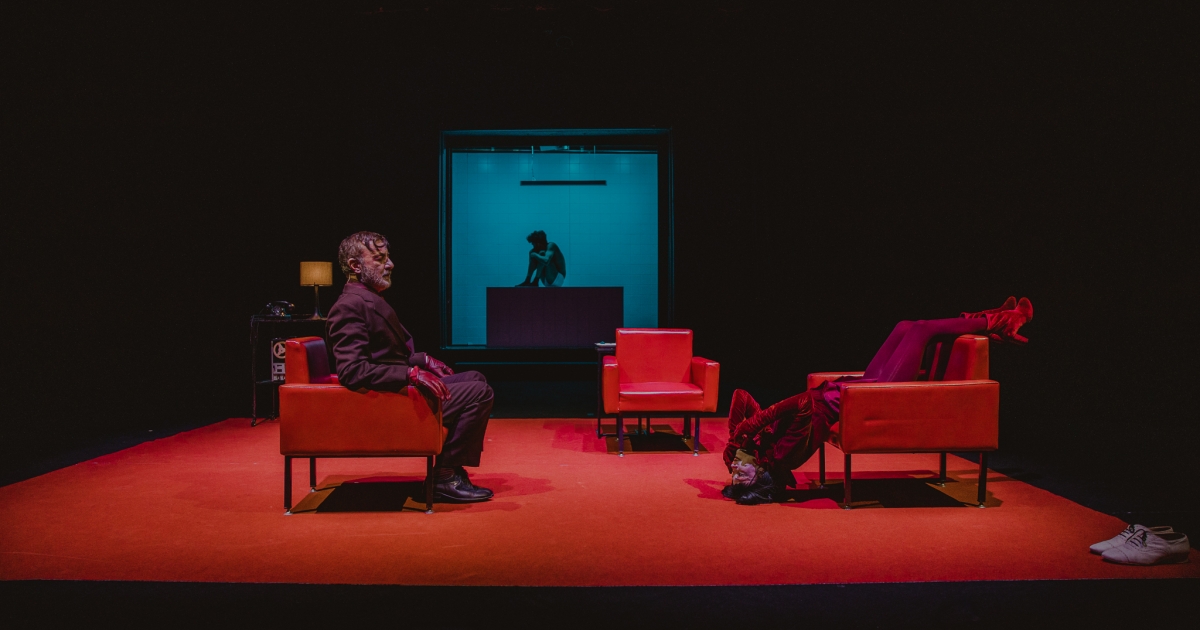“An Ode to Female Resilience, Empowerment and Sisterhood”
Q: How did the idea of “Fabulous Creatures” come about?
A: I first read Homer’s “The Odyssey” when I was 12 years old. It’s a set text in middle school in Greece, so it’s part of our curriculum and exams. Even though the way it was taught in Greek schools was not necessarily the most imaginative one, I was fascinated by the scale and depth of it, the sheer richness of the characters and landscapes. Such an amazing universe.
In the years that followed, I remained very interested in Ancient Greek myths and the interconnected nature of these characters and these stories (the Odyssey, the Iliad, the tragedies of Euripides, Aeschylus). But why “Fabulous Creatures” and why Scylla, Charybdis and the Sirens? Well, to cut a long story short, I was so interested in the stories of these female monsters (whom we only meet briefly, in Book 12, in “The Odyssey” and as parentheses in other myths). And even felt a bit disappointed that we don’t get to find out more about them and their story. I felt like they had so much to tell, about their ‘transformation’, their punishment, their survival instinct, and yet no one had bothered to tell it. The more I was looking into their back story, the more hooked I would get. And the more certain I became of the fact that they deserved to come centre stage and meet their audience! The creation of this project involved a lot of research but also a lot of filling the blanks. Above all, I see the project as a celebration of female resilience. In our production, we not only get to meet these fabulous creatures (which is a dictionary definition of “monster”) and hear their stories but also get to go on a journey with them. I won’t disclose too much about what their top secret mission is (they are after all some of antiquity’s most renowned killers!), but they will meet another famous female killer along their way: Clytemnestra.
Q: In your process, is it important to work mostly with female creatives and partners?
A: I certainly love to work with female partners and creatives. And even more so for this project, where the sense of female solidarity and sisterhood are integral themes. But above all, as a director and leader, I actively try to create spaces and rehearsal rooms that are diverse in all aspects, including gender. Over the years I have come to realise that what makes a piece ‘feminist’ is not only the story it communicates, but the way with which this story is brought to life. I take huge pride in the fact that I lead processes that depend on mutual appreciation, collaboration, and sensitivity. And the reason why I keep working with certain female collaborators, such as choreographer/movement director Ioli Filippakopoulou and composer Irene Skylakaki, is not their gender per se, but the fact that as creatives they share the same ethos and the working culture as I do. I am also very excited that this project marks my first collaboration with Elizabeth Filippouli, who has taken on the role of the executive producer for the 'Fabulous Creatures'. Likewise, working with Elizabeth is a dream, because of how much I admire her leadership skills, coupled with her great sensibility, intelligence and ability to make things work. I truly believe that good directing starts with being able to put the right people in the room and mark the space for these people to be creative. I’ve been very lucky (or perhaps wise?) in having some exceptional female - and not only - creatives and partners for this production!

Q: You are London-based, but lately you have been directing projects back in your homeland, in Athens. How have you found combining the two?
A: I was born and raised in Athens, but moved to London when I was 18 years old. So for the past decade, London has been my home and creative hub. London is the place that nurtured and trained me. I wouldn’t be the director I am today, had it not been for the teachers, mentors and creative stimuli of this incredible metropolis. But on the flip side of that, I wouldn’t be the person I am today without the culture and the stories of my Greek heritage and upbringing. I directed my first production in Athens in 2022 (at the acclaimed Poreia Theatre, after an invitation by exceptional producer Dimitri Tarlow). I am indebted to Tarlow, actually, as he was the first that showed me that working in both countries is a possibility. Since then, it hasn’t always been easy: having two ‘homes’, two languages, two ways of operating in two quite different cultural settings. But it does keep me on my toes! And I do feel lucky to be able to have projects in both London and Athens. Each country and each theatre industry has its own flaws, of course, so it’s a challenge to find ways to navigate past the different hurdles! What excites me about “Fabulous Creatures”, though, is the possibility of ‘transferring’ for the first time a show that I will have opened in London to Athens. Till now I’ve kept the projects, and the teams, quite separate, so what makes “Fabulous Creatures” unique is how I am already ‘blending’ collaborators and cultures.
Q: Lastly, what do you believe about Theatre as activism, in terms of female empowerment specifically?
A: I do believe in the power theatre has: the power to tell new stories (or old stories in a new way!). And its power to put on stage exciting characters and exciting narratives. Theatre - as Literature, TV, and Film - has the potential to shake off stereotypes, to reshape preconceived ideas, to mould opinions and to ultimately change social order. For “Fabulous Creatures” we are specifically targeting students between 16-25 years old to come see the show. I am determined to invite young audiences to think about ‘who is the real monster’ in these stories? And therefore urging them to think about other stories, and consequently our society too. Just because someone has been assigned the label ‘ugly’ or ‘monster’ or ‘villain’, is that good enough reason for us all to continue perceiving, or treating them, as such? Scylla, Charybdis, Siren and Clytemnestra stand for women who were punished, ostracised and vilified for reasons that were quite absurd or short-sighted. I am proud of the way we present these mythological creatures in the show. We are trying to see beyond their victimhood, beyond their monstrous appearance and their ‘evil’ label. I see them as beautiful and fierce survivors. As I said earlier, I see this show as an ode to female resilience, empowerment and sisterhood.
You can buy tickets for the 'Fabulous Creatures' here: https://www.arcolatheatre.com/whats-on/fabulous-creatures/

Emily Louizou
Theatre Director & Founder, Collide Theatre
Emily Louizou is a London-based theatre and opera director, originally from Athens, Greece. She trained on the acclaimed MFA Theatre Directing programme at Birkbeck, University of London. Prior to this, she completed her BA Degree in English Literature at University College London (UCL). She is the founder and Artistic Director of Collide, an international female-led theatre company based in London. Since its inception in 2015, Collide has collaborated with more than 70 artists coming from diverse cultural backgrounds and created 9 successful theatre productions. In 2019, Collide was selected to as one of the ten most promising companies to watch by the New Diorama. Emily’s production of Kafka’s Metamorphosis was featured in the Incoming Festival 2019 which showcased the UK’s most “explosive” work from emerging artists! In 2022 Collide was hailed by The Guardian “clearly a company to keep an eye on”. Emily’s latest production was an adaptation of Aeschylus’ Eumenides at the Little Theatre of Ancient Epidaurus in July 2023. In addition to her directing work, Emily has worked as a resident assistant director at the Royal Shakespeare Company and at HOME in Manchester.
Published: 21/03/2024



